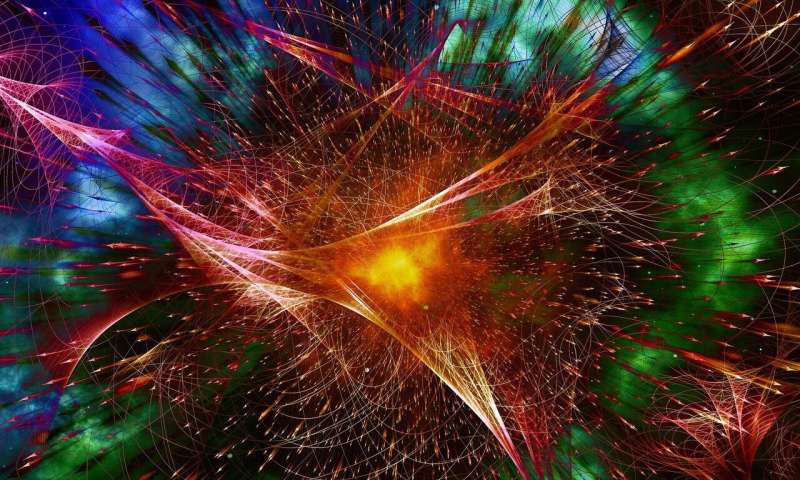Weak equivalence principle violated in gravitational waves

The Weak equivalence principle (WEP) is a key aspect of classical physics. It states that when particles are in freefall, the trajectories they follow are entirely independent of their masses. However, it is not yet clear whether this property also applies within the more complex field of quantum mechanics. In new research published in EPJ C, James Quach at the University of Adelaide, Australia, proves theoretically that the WEP can be violated by quantum particles in gravitational waves—the ripples in spacetime caused by colossal events such as merging black holes.
As well as resolving a long-standing debate in quantum theory, Quach's findings could lead to the development of advanced new materials, including fluids with infinite conductivity and zero viscosity. These could be used as advanced gravitational wave detectors and may even lead to devices which can mirror gravitational waves and harvest their energy. Quach based his approach around a principle named 'Fisher information'—a way of measuring how much information an observable random variable carries about a particular unknown parameter. Here, the random variable describes the position of a quantum particle in a gravitational field, while the unknown parameter is its mass. If the WEP were obeyed, the Fisher information should be zero in this case.
Through his calculations, Quach rewrote an equation describing the WEP for freely falling quantum particles, to incorporate their Fisher information. He showed that while these particles obey the WEP in static gravitational fields, their trajectories can indeed give away information about their mass when they pass through gravitational waves. For the first time, the calculation precisely characterizes how the WEP can be violated by quantum particles, and provides key insights for future studies searching for the violation through real experiments.
More information: James Q. Quach, Fisher information and the weak equivalence principle of a quantum particle in a gravitational wave, The European Physical Journal C (2020). DOI: 10.1140/epjc/s10052-020-08530-6
Provided by Springer




















